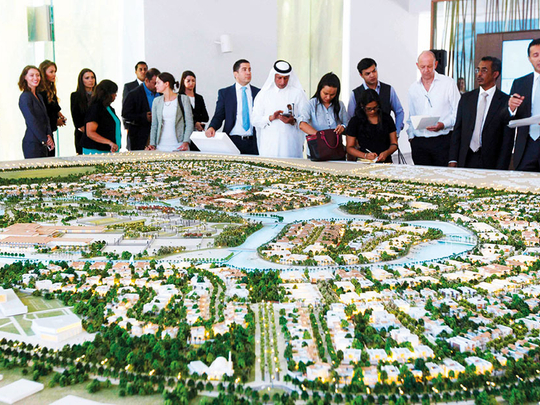
Dubai: Overseas property investors are clearly seeing a bargain in Dubai — more than 60 per cent of transactions in the first six months involved these buyers. And they could stay interested in the months ahead.
Currently, $1 million (Dh3.67 million) would secure 1,370 square feet of a high-end apartment unit in Dubai, according to estimates put out by Knight Frank, the consultancy. The same amount would only get you 160 square feet in Monaco, 220 square feet in Hong Kong, and 290 square feet in London.
Among leading property investment markets, prices of high-end homes in Dubai dropped 0.8 per cent in the 12 months leading up to end Q2-18. This placed the city in 16th spot and just ahead of London, where prices were down 1.8 per cent during the period. Singapore and Madrid were the best performers in the category, with luxury units up 11.5 and 10.3 per cent, respectively. Singapore has seen “resurgent price growth due to rising foreign demand and high land bids by developers”.
But going forward, it needn’t be smooth sailing for investors eyeing Singapore.
“Singapore leads our annual rankings to Q2-18 ... but if policymakers have their way, the recent increase in stamp duty for foreign buyers and developers introduced in July 2018 will result in more moderate price growth,” said Kate Everett-Allen, Partner, international residential research at Knight Frank.
“Investors may rue the rise in regulations which, in many cases, add to their bottom-line. On the other hand, new regulations have heightened market transparency enabling some purchasers to move into emerging markets with greater confidence.”
Singapore and Vancouver also have new measures tightening up investment flows into their property market, from vacancy taxes to stamp duty hikes and tighter lending rules.
But the UAE has taken a different tack in recent months. Abu Dhabi recently announced that it would offer up to 10-year residency visas for investors. They have also done away with the requirement that investors need to have leased commercial premises in the initial years of launch of operations. Instead, they can operate out of their residential addresses.
According to Taimur Khan, Research Manager at Knight Frank M.E., “As other global markets enact a range of macro-prudential measures, Dubai, alongside the other emirates in the UAE, has announced a host of changes to ease residency and investment laws. This has boosted investor confidence in Dubai.”
Emergence of relatively new locations such as Dubai Creek Harbour and MBR (Mohammad Bin Rashid) City could also help tap into a wider buyer base. “We’ve mainly received enquiries from Chinese buyers and other long-term investors for Dubai Creek Harbour,” said Sally Ann Ghai, Associate Director, Luxhabitat. “Demand has lately remained flat, thanks to the attractive price point, with prices starting at Dh1 million for a one-bedroom apartment.
“It remains to be seen how pricing will play out in the longer term after handover starts on the early MBR City projects. The Meydan-Sobha venture, District One, seems to be in a similar position to the rest of the secondary market. Sobha Hartland has not been handed over,,, so it is too early to say how market forces will affect future sales.
“In the last six months, sellers in Dubai do seem to be prepared to come to market at the correct initial pricing, rather than starting high and gradually chipping away at the listing price — a terrible strategy. This move away from vanity pricing is encouraging. The market is maturing and this means it should be more predictable and less volatile.”











